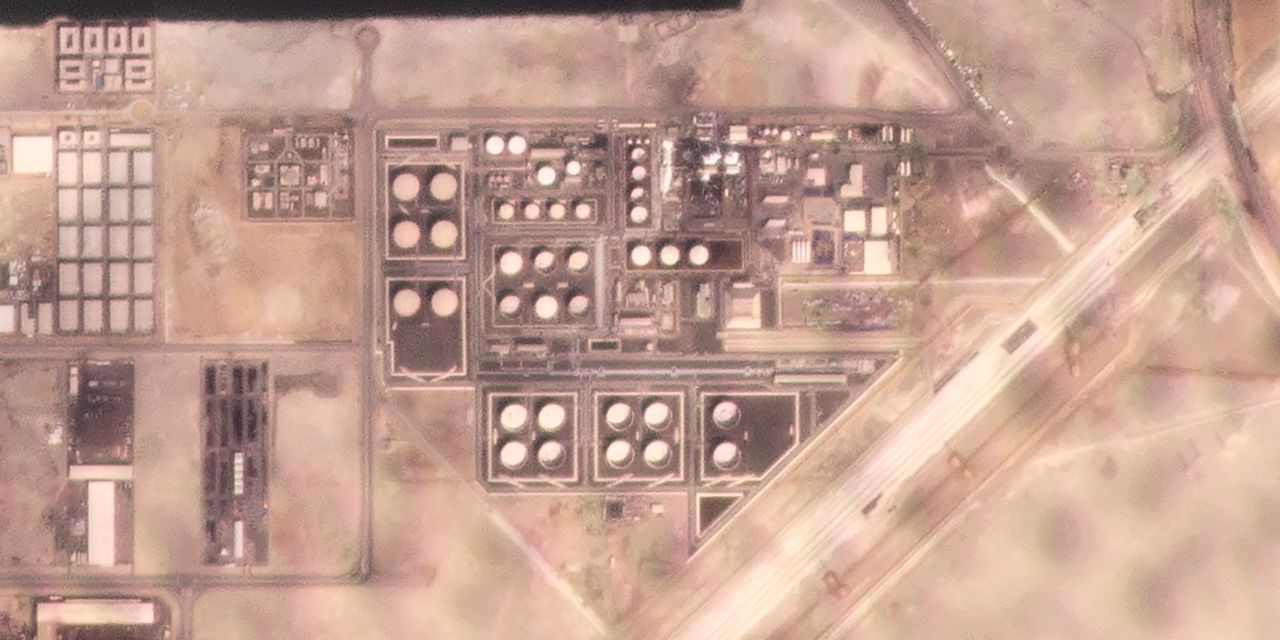

Crude prices rose to their highest level since the 2014 shale-induced oil crash, a milestone in a rally that is gathering momentum as geopolitical tensions threaten to knock supply.
Futures for West Texas Intermediate, the main grade of U.S. crude, added $1.61 per barrel, or 1.9%, to $85.43 on Tuesday. That marks the highest closing level since October 2014, when oil prices were moving in the opposite direction as a gusher of U.S. crude flooded the market.
Of the S&P 500’s 11 sectors, only energy rose Tuesday, while the broader index declined 1.8%.
It took the oil market several years to recover from the price decline set in motion by America’s re-emergence as an oil-producing superpower. The rebound from the coronavirus crash of 2020—when U.S. crude futures turned negative as the world struggled to find places to store oil—has been much faster.
Among the factors driving the rally are concerns that tensions in the Middle East and Europe will spill into energy markets by denting supplies from major crude producers, particularly Russia and the United Arab Emirates. Any outages are likely to goose prices in a market where demand is rising and stockpiles have fallen below recent norms, traders and analysts say.
Adding to oil’s gains, the wave of infection caused by Omicron hasn’t reduced demand as much as traders thought it might when the variant was identified in late November. In a report published Tuesday, the Organization of the Petroleum Exporting Countries forecast that the world would consume 100.8 million barrels of oil a day this year, up 4.2 million barrels a day from 2021. The rise has been driven by rising demand for light distillates used in the petrochemical industry.
Investors are bidding up shares of energy companies, making the sector the best performer on the S&P 500 so far in 2022.
has gained 10% and
has added 19% so far this year.
Photo:
Planet Labs PBC/Associated Press
Gasoline prices are rising, adding to inflationary pressures and complicating matters for President Biden, who released crude from the strategic reserve in the fall in an attempt to help drivers facing sticker shock. National average gasoline prices stand at $3.314 a gallon, according to AAA, up from $2.386 a year ago.
It isn’t just crude futures that are rising. In the physical oil market, prices have jumped for grades of crude such as Forties, produced in the North Sea, and Nigeria’s Bonny Light, a sign that traders and refiners are snapping up barrels in a tightening market.
The market “perceives a capacity crunch could happen later in the year and is trying to get ahead of that,” said Paul Horsnell, head of commodities strategy at
He said traders worry that energy exports from Russia will take a hit from tensions with the U.S. over troops at the border with Ukraine, and are also concerned by attacks on the United Arab Emirates.
Yemen’s Iran-backed Houthi rebels said they were behind aerial attacks that killed three people in the top-10 crude producer Monday. One of the strikes hit fuel trucks at Musaffah, near a major depot owned by Abu Dhabi National Oil Co., known as Adnoc, about 15 miles from the center of Abu Dhabi where trucks stock up on gasoline and diesel to distribute to forecourts.
The attacks showed the Houthis are willing to strike in the heart of a country seen as the region’s main hub for international business. U.S., European and Israeli defense officials say the growing ability of Iran and its allies to deploy drones is changing the security equation in the Middle East.
Adnoc is working closely with authorities to determine what happened, a spokesman said. The state-owned company said in November it was investing almost $6 billion to raise production capacity to 5 million barrels a day, part of an effort to sell as much crude as possible before demand dries up.
Also pushing oil prices higher, a shortage of natural gas outside the U.S. has boosted demand for fuel oil. Analysts at
this week said gas-to-oil switching at power stations in Europe and Asia raised oil demand by half a million barrels a day in December. They forecast a further 300,000 barrel increase each day in January and February and figure demand for crude will reach record highs this year and next.
Spot prices for crude have risen above prices for oil further in the future, showing traders are willing to pay up to secure tight supplies immediately. Futures for U.S. crude to be delivered next month cost $9.87 a barrel more than those for crude to be delivered 12 months later Tuesday, among the highest premiums of the past 10 years.
Higher spot prices can add momentum to commodity markets by encouraging investors seeking a kind of return known as roll yield to buy futures contracts.
Write to Joe Wallace at joe.wallace@wsj.com
Copyright ©2022 Dow Jones & Company, Inc. All Rights Reserved. 87990cbe856818d5eddac44c7b1cdeb8
24World Media does not take any responsibility of the information you see on this page. The content this page contains is from independent third-party content provider. If you have any concerns regarding the content, please free to write us here: contact@24worldmedia.com

Common Mistakes When Using Athletic Field Tarps

High-Performance Diesel Truck Upgrades You Should Consider

Warehouse Optimization Tips To Improve Performance

Fire Hazards in Daily Life: The Most Common Ignition Sources

Yellowstone’s Wolves: A Debate Over Their Role in the Park’s Ecosystem

Earth Day 2024: A Look at 3 Places Adapting Quickly to Fight Climate Change

Millions of Girls in Africa Will Miss HPV Shots After Merck Production Problem

This Lava Tube in Saudi Arabia Has Been a Human Refuge for 7,000 Years

Four Wild Ways to Save the Koala (That Just Might Work)

National Academy Asks Court to Strip Sackler Name From Endowment

Ways Industrial Copper Helps Energy Production

The Ins and Out of Industrial Conveyor Belts